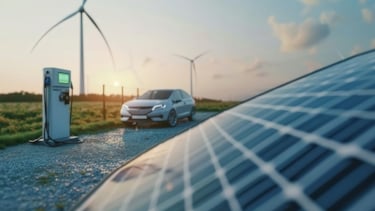Safe, certified and future-proof: how Kiwa supports the development of hydrogen components
The use of hydrogen as a sustainable energy carrier is growing rapidly, particularly in mobility and storage applications. For manufacturers of hydrogen tanks and components, this means an increasing need to comply with complex and diverse standards, ranging from automotive regulations to international transport legislation. Kiwa supports this development with a complete package of testing and certification services.
A five-step path from design to certification
The road to a certified hydrogen tank starts with a solid product design and the right material choices. From there, a clearly defined five-step plan guides manufacturers through the process, supported by Kiwa’s deep expertise:
Prototype testing
Standard selection and alignment
Comprehensive testing under accreditation
Certification and market approval
Quality assurance in production
Road vehicles or transport storage?
Requirements for hydrogen storage differ by application. Tanks in vehicles fall under UN ECE R134, requiring complex test programs (including tests with compressed hydrogen). These applications require certification by national authorities. Transportable tanks or storage containers fall under TPED, with a stronger focus on hydraulic cycle tests and permeation. Kiwa has the testing capabilities and certification authority to facilitate both routes, automotive and TPED, end-to-end.
Hydrogen components
Hydrogen storage involves more than tanks alone. High-pressure components such as valves, couplings and hoses must also meet strict requirements. For these, Kiwa offers comprehensive testing programs covering thermal cycles, mechanical stresses, leak-tightness and long-term durability. Tests are performed in modern facilities in the Netherlands (Apeldoorn) and Germany (Brunnthal, ET EnergieTechnologie, part of Kiwa), both ISO 17025 accredited.
International scope, local expertise
Global adoption of hydrogen technology requires understanding of international standards as well as their local interpretations. Kiwa supports customers worldwide with knowledge of regional regulations such as DOT (USA), KHK (Japan) and CSA (Canada). At the same time, Kiwa continuously invests in new testing technologies, such as burst container testing and hydraulic cycles at high temperatures. Through participation in technical committees like ISO TC22SC41 and UNECE GRSG, Kiwa also contributes to shaping future standards.
One-stop shop for the hydrogen market
With more than 25 years of experience, an international network and extensive testing capabilities, Kiwa is a reliable partner in hydrogen technology certification. From design to market approval, from cylinders to components and from standards interpretation to future outlook: Kiwa provides technical expertise, pragmatic guidance and a strong focus on safety and innovation. Whether you are active in mobility, transport or energy storage, with Kiwa as your one-stop shop you can be sure your product is ready for tomorrow’s hydrogen market.
Useful links
Want to know more on the energy transition?
Our experts have deep knowledge and experience in specific fields. Questions, dilemmas or just curious?
Energy Transition
A new energy system is emerging. We must combat global warming by reducing the harmful carbon emissions associated with our energy systems.

